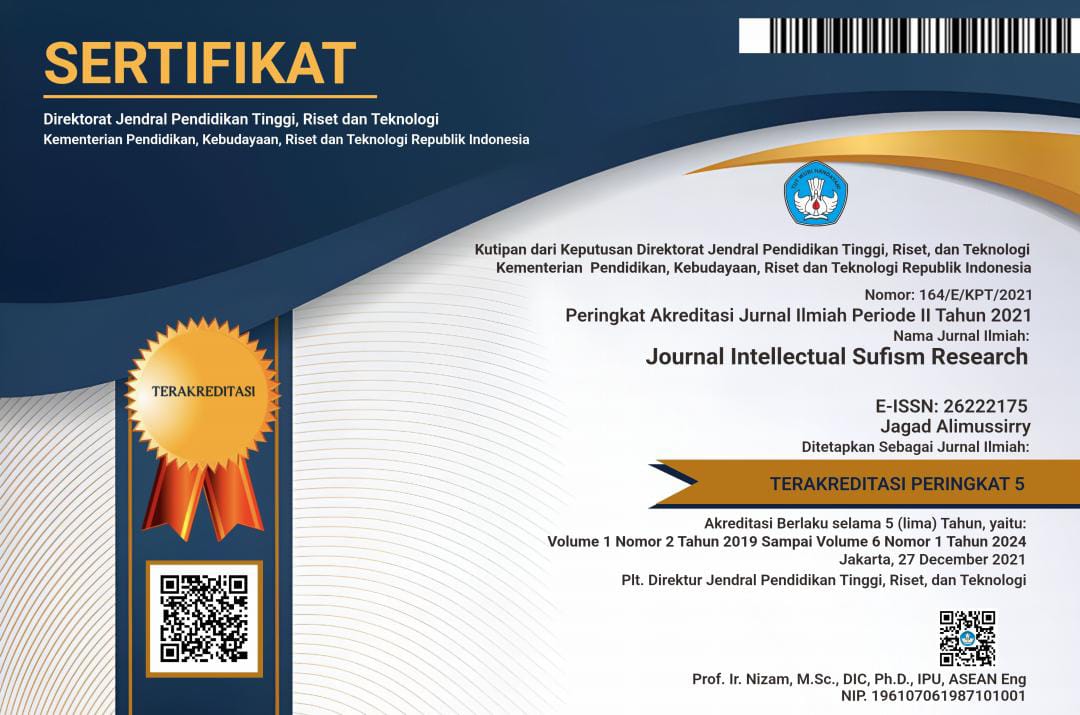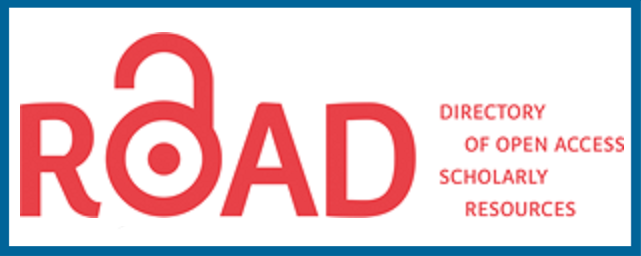Heterogeneous Classroom Management Strategies Through Culturally Responsive Education
DOI:
https://doi.org/10.52032/jisr.v5i2.142Abstract
The cultural complexity of students in urban areas has influenced schools in the teaching and learning process. Classroom management becomes a concern for educators in managing a heterogeneous class. This becomes one of the important tasks for teachers in creating and maintaining an effective classroom condition. On the other hand, if the heterogeneity of students is not managed properly, it can become a source of various problems in the class. Starting from bullying, uncontrolled learning atmosphere, even attitudes of antipathy towards diversity that trigger other negative attitudes such as discrimination and injustice. This study aims to determine the teacher's strategies in managing a heterogeneous class. This research method uses a qualitative approach and applies the method of library research using sources from Google Scholar, Sage, Garuda, and books. The analysis technique used in this research is content analysis. The results of this study obtained strategies for managing a heterogeneous class, namely 1) the Teacher's understanding of equality and equity, 2) Self-understanding in relation to others, 3) the Teacher blending into the students' world. So when teachers face a heterogeneous class, they can use these three strategies to create an effective and conducive heterogeneous class.
References
Alexon, Alexon .2010. Culture-Based Integrated Learning. FKIP UNIB Bengkulu: Bengkulu Press
Aziz, H. A. (2012). The character of a professional teacher. Jakarta: Al-Mawardi Prima.
Banks, J. A. (2005). The Routledge International Companion to Multicultural Education.
Baskara L, In Adhi.2018. Komnas HAM Survey: Racial and Ethnic Discrimination Still Tolerated. Retrieved June 12, 2020 on https://tirto.id/survei-komnas-ham-diskriminasi-etnis-ras-masih-terus-ditolerir-dahP
Corson, D. (2001) Ontario students as a means to a government's ends,Our Schools/Our Selves,10(4), 55–77.
Djamarah, S. B., &; Zain, A. (2010). Teaching and Learning Strategies (4th ed.). Jakarta: Rineka Cipta.
Espinoza, O. (2007). Solving the equity-equality conceptual dilemma: A new model for analysis of the educational process. Educational Research, 49(4), 343–363. https://doi.org/10.1080/00131880701717198
Gay Geneva. (2002). Preparing for Culturally Responsive Teaching On behalf of: American Association of Colleges for Teacher Education (AACTE) can be found at: Journal of Teacher Education Additional services and information for. In Journal of Teacher Education (Vol. 53).
Gay, G. (2004). The importance of multicultural education. The curriculum studies reader, 315, 320.
Hardin, C.J. (2004). Effective Classroom Management: Models and Strategies for Today's Classrooms. Upper Saddle River, New Jersey: Pearson Merrill Prentice Hall.
Iriantara, Yasol. Learning Communication (Communicative and Educational Attraction in the Classroom). PT. Remaja Rosdakarya Bandung, 2014
Kraft, M. E., &; Furlong, S. R. (2019). Public policy: Politics, analysis, and alternatives. Cq Press.
Ladson-Billings, G. (1994). The dreamkeepers: Successful teachers of African American children. San Francisco: Jossey-Bass.
Milner IV, H. R., & Tenore, F. B. (2010). Classroom Management in Diverse Classrooms. Urban Education, 45(5), 560–603. https://doi.org/10.1177/0042085910377290
Milner IV, R. R. (2011). Culturally Relevant Pedagogy in a Diverse Urban Classroom. Urban Review, 43(1), 66–89. https://doi.org/10.1007/s11256-009-0143-0
Pebriansyah, B. F., Responsive Culture..., P., Responsive Culture, P., Create, U., &; Multicultural, P. (2020). Cultural Responsive Education as an Effort to Create Multicultural Education. http://ejournal.upi.edu/index.php/sosietas/
Raharja, S. (2010). CREATING MULTICULTURAL EDUCATION IN SCHOOLS BY IMPLEMENTING TOTAL SCHOOL QUALITY MANAGEMENT. http://staffnew.uny.ac.id/upload/132169259/penelitian/03.Setyo+R+Oktober+2010.pdf
Rahmawati, M., &; Suryadi, E. (2019). Teachers as facilitators and effectiveness of student learning. Journal of Office Management Education, 4(1), 49. https://doi.org/10.17509/jpm.v4i1.14954
Rosarian, A. W., &; Dirgantoro, K. P. S. (2020). Teacher's efforts in building student interaction using a game based learning method. JOHME: Journal of Holistic Mathematics Education, 3(2), 146-163.
Rytivaara, A. (2011). Flexible grouping as a means for classroom management in a heterogeneous classroom. European Educational Research Journal, 10(1), 118–128. https://doi.org/10.2304/eerj.2011.10.1.118
Sari, M., &; Asmendri. (2020). Library Research in Science Education Research.
Somantrie, H. (2011). Conflict in Multicultural Educational Perspectives. In Journal of Education and Culture (Vol. 17).
Waty, A. (2017). The relationship of social interaction with moral development in adolescents at UISU Medan High School. In Journal of Counseling Psychology (Vol. 10, Issue 1).
Weinstein, C., Curran, M., & Tomlinson-Clarke, S. (2003). Culturally Responsive Classroom Management: Awareness into Action. In Theory into Practice (Vol. 42, Issue 4, pp. 269–276). Routledge. https://doi.org/10.1207/s15430421tip4204_2
Weinstein, C. S., Tomlinson-Clarke, S., & Curran, M. (2004a). Toward a conception of culturally responsive classroom management. Journal of Teacher Education, 55(1), 25–38. https://doi.org/10.1177/0022487103259812
Weinstein, C. S., Tomlinson-Clarke, S., & Curran, M. (2004b). Toward a conception of culturally responsive classroom management. Journal of Teacher Education, 55(1), 25–38. https://doi.org/10.1177/0022487103259812
Wheelen, T. L., &; Hunger, J. D. (2003). Strategic Management. Yogyakarta: Andi Offset. Zed, M. (2008). Literature research method. Jakarta: Torch Foundation.
















